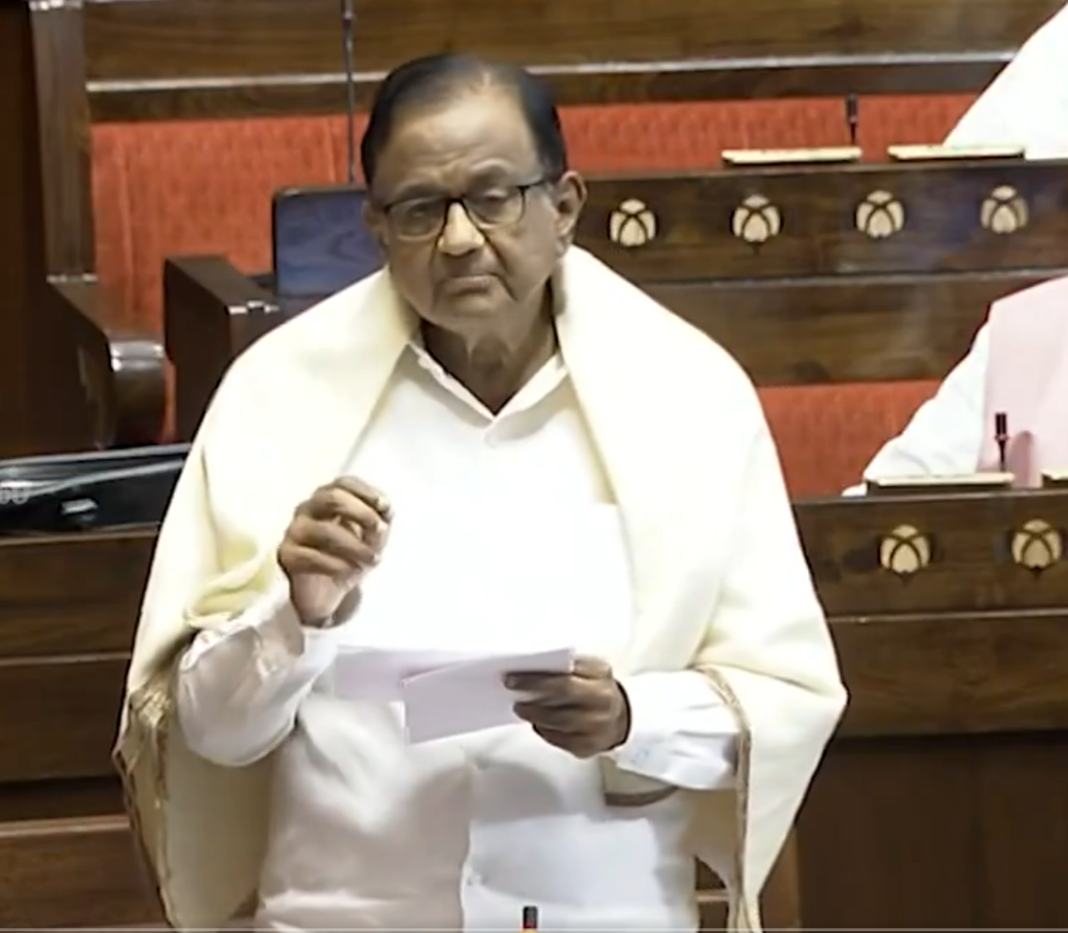Chidambaram’s Disclosure Reignites 26/11 Debate
Former Union Home Minister P. Chidambaram has admitted that India came close to military retaliation against Pakistan in the aftermath of the 26/11 Mumbai terror attacks but refrained due to strong international pressure, including appeals from the United States. His remarks, given in an interview with a Hindi news channel, have triggered a fresh political storm, with the Bharatiya Janata Party (BJP) accusing the then Congress-led UPA government of mishandling national security.
The 26/11 attacks, carried out by the Pakistan-based Lashkar-e-Taiba, left 175 people dead and brought India’s financial capital to a standstill for three days. Chidambaram, who assumed the Home Ministry portfolio shortly after the tragedy, said foreign leaders and diplomats urged restraint, fearing an escalation into full-scale war.
“Whole World Said Don’t Start A War”
Recalling the tense days after the attacks, Chidambaram said, “The whole world descended on Delhi to tell us ‘don’t start a war’.” He revealed that then-US Secretary of State Condoleezza Rice flew to Delhi within days and directly urged both him and then-Prime Minister Dr. Manmohan Singh not to launch military strikes.
“Two or three days after I took over, Condoleezza Rice came to meet me and the Prime Minister to say ‘please don’t react’. I said this is a decision the government will take. But yes, an act of retribution did cross my mind,” Chidambaram admitted.
He added that while retaliatory action was seriously discussed at the highest levels, the final decision was heavily influenced by the Ministry of External Affairs and senior Indian Foreign Service officers. “The Prime Minister discussed this even when the attack was going on… the conclusion, largely influenced by the Ministry of External Affairs, was that we should not physically react,” he said.
BJP Hits Back, Calls It Weakness
The BJP seized on Chidambaram’s comments as proof of what it has long accused Congress of — indecisiveness in the face of terror. Union Minister Pralhad Joshi shared a clip of the interview on X and wrote, “After 17 years, Chidambaram admits what the nation knew — 26/11 was mishandled due to pressure from foreign powers. Too little, too late.”
BJP spokesperson Shehzad Poonawala went further, invoking Sonia Gandhi’s name. “Why was the UPA taking orders from her? Why did she prevail over the Home Minister? Why were key decisions on Pakistan influenced from outside the system?” he asked, hinting at what the BJP claims was undue interference in matters of national security.
The ruling party has repeatedly contrasted this with the Modi government’s willingness to authorize cross-border strikes, first after the 2016 Uri attack and later following the Pulwama attack in 2019.
SHOCKING 🚨
UPA Home Minister P. Chidambaram admits that Congress didn’t avenge 26/11 due to pressure from the USA.
And Congress has the audacity to call Op Sindoor a surrender. pic.twitter.com/QPBJXHxOuj
— BALA (@erbmjha) September 29, 2025
Trump’s Claim and Operation Sindoor
Chidambaram’s remarks also bring renewed focus to an old controversy involving former US President Donald Trump. In 2019, Trump had claimed that he personally persuaded India and Pakistan to cease hostilities during a period of heightened tensions, saying he “sure as hell helped” negotiate peace.
The BJP has consistently rejected Trump’s version, insisting that the May 10 ceasefire in 2019 was the outcome of direct talks between Indian and Pakistani military leadership, without third-party involvement. Despite official denials, Trump’s statements continue to resurface in domestic debates about India’s handling of its volatile relationship with Pakistan.
Operation Sindoor, India’s military response to the Pahalgam terror attack earlier this year, has added another layer to this debate. The operation involved precision air strikes on nine terror camps in Pakistan and Pakistan-occupied Kashmir. Pakistan retaliated with missile and drone strikes, sparking nearly 100 hours of conflict — the most intense military exchange between the two countries since 1971. The BJP has sought to use Operation Sindoor as an example of decisive leadership, contrasting it with what it calls the UPA’s policy of restraint.
National Security Back in Spotlight
Chidambaram’s frank admission has reignited questions about India’s posture in 2008 and whether restraint helped avoid a disastrous war or signaled weakness to Pakistan-based terror outfits. Supporters of the UPA argue that avoiding escalation was a wise and statesmanlike decision that kept the subcontinent from the brink of war. Critics, however, insist that the lack of retaliation emboldened extremist groups across the border and weakened India’s deterrence.
Seventeen years later, the scars of 26/11 remain deep, and the political battle over how India should have responded is far from settled. With national elections approaching, the BJP is expected to keep highlighting these remarks as part of its broader campaign narrative on security and strong leadership.








